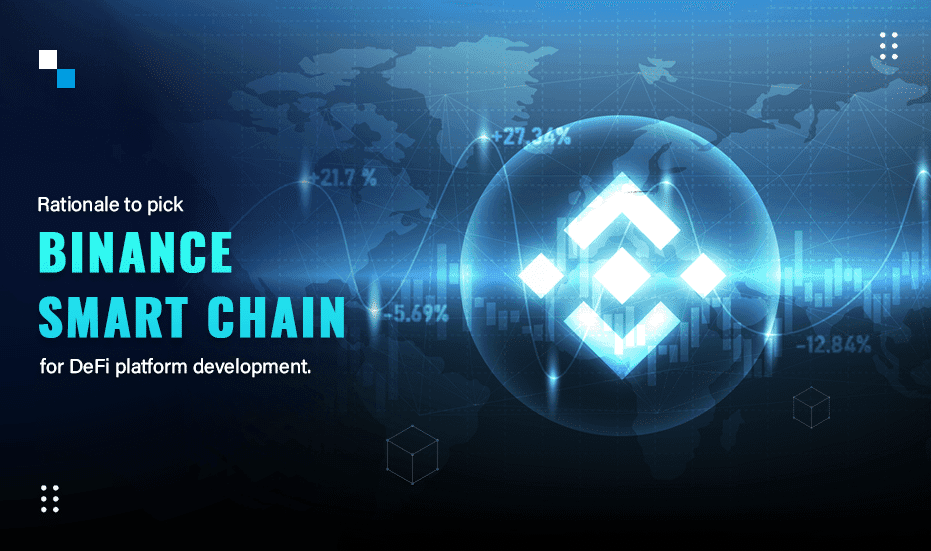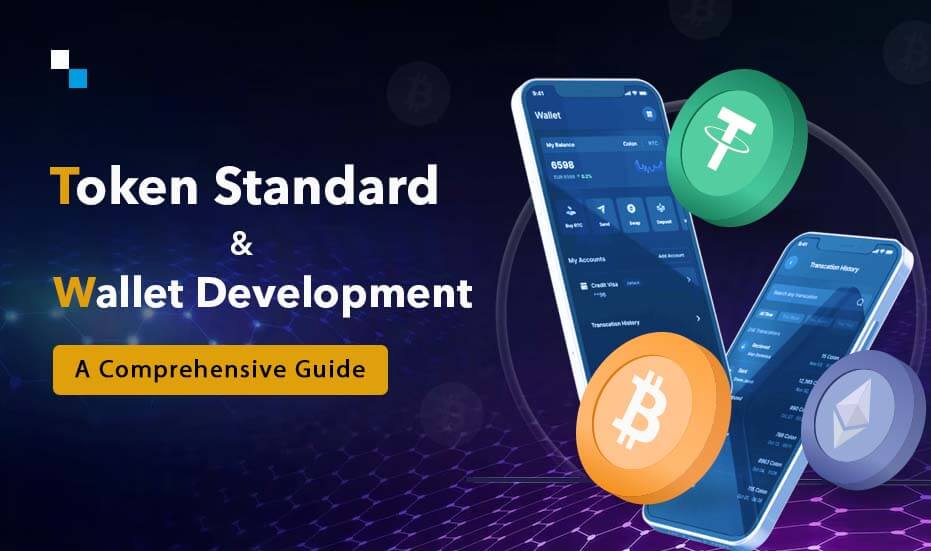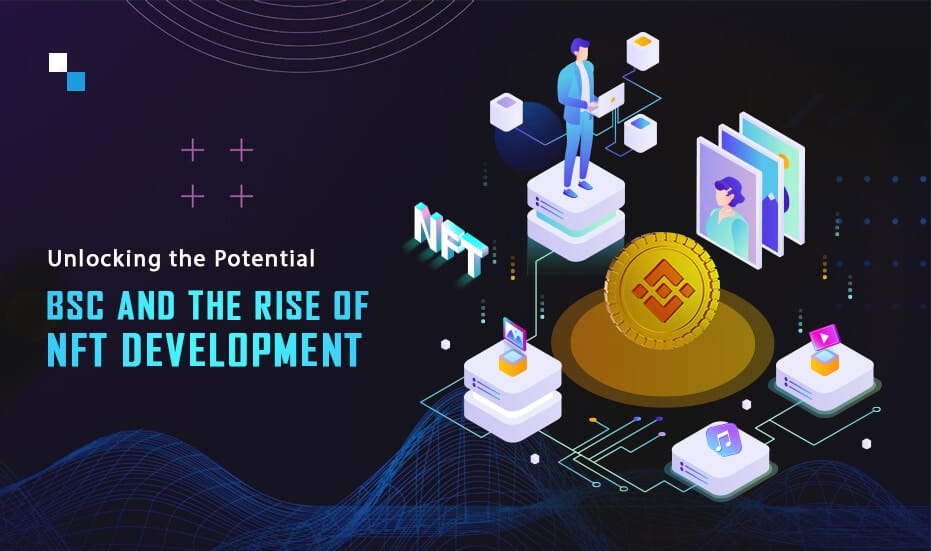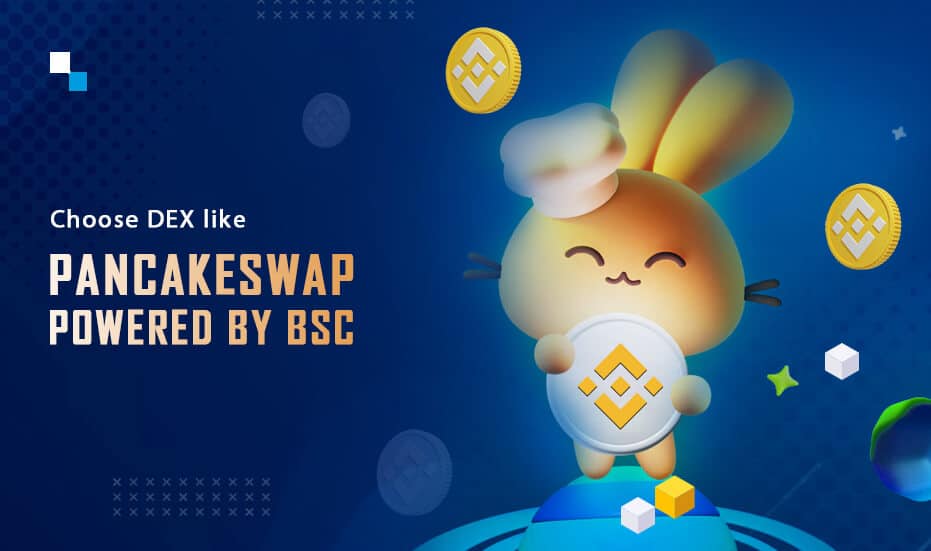
How will the Web3 Education Platform empower the conventional education system?
November 17, 2022
Choose Antier For Initial DEX Offering Launchpad Development Like Scaleswap
November 18, 2022Since its launch in 2020, during the times of the DeFi revolution when the public’s interest was more in alternative financial solutions based on blockchain, the Binance Smart Chain Platform has gained much traction with an unexpectedly faster reach in the cryptocurrency world attaining rank in the top 5 blockchains of the time thereby enhancing BSC token development (BEP20) also.
With the next generation being more inclined to the crypto world, blockchains are highly preferred for DeFi platform developmen however, why Binance smart chain is considered sound for creating DeFi platforms will be our prime focus here.
What is Binance Smart Chain?
At first, Binance Chain was launched by Binance in April 2019 and was later renamed BNB Beacon Chain in 2022. It was optimized for fast decentralized trading but lacked smart contracts and strong programmability.
Binance Smart Chain was created to overcome the shortcomings of Binance Chain. It runs parallel to the original Binance Chain and has smart contract functionality. It is compatible with the Ethereum Virtual Machine (EVM).
Interestingly, both blockchains operate alongside and BSC is not a layer two solution as it would work independently even if BNB Beacon Chain goes offline.
Binance Smart Chain is relatively better than Binance chain in the following ways :-
- Its ability to operate smart contracts
- Its compatibility with Ethereum
- Its proficiency in creating Dapps and DeFi projects
- BNB Stacking
Why BSC is Getting Popular?
To understand and explain this striking shift of trend, Ethereum is to be thanked or blamed. Since 2015, the open source system has permitted decentralized applications to be directly programmed on blockchain. Later on by 2020, the burgeoning transactional fees reached such an alarming level that people found it problematic to deal in cryptocurrency on the only platform available- Ethereum as the traffic increased albeit limited count of transactions possible per second. This scenario increased the demand and hence the costs, when BSC came into the limelight by utilizing the opportunity of providing better speed but at a cheaper cost which obviously attracted a huge crowd.
BSC at present has reached its heights in the industry with attributes like :-
- BSC provides a platform for one of the fastest blockchain transactions and the lowest cost structures, which makes the development of DeFi Apps a very attractive protocol for developers.
- BSC relies on the 21 validator systems with PoSA (Proof of Stake Authority) which holds the ability to support short blocks of time and lower costs.
- Now, there are 60+ DAPPs operating on Binance Smart Chain with the majority focusing on decentralized financial solutions.
The aforementioned factors seem quite convincing for the preference given to BSC in the crypto industry, let’s delve deeper into the detailed view of the attributes of BSC which are making it more apt for DeFi development.
At the start of the year 2022, Binance Smart chain had a total of 10.4M active addresses whereas the count was almost half, i.e., 5.44M in the case of Ethereum.
How BSC is the Ideal Choice for Developing DeFi Platforms?
The DeFi space is gaining traction among crypto enthusiasts and is expanding rapidly on both Ethereum and Binance Smart Chain; while Ethereum is attaining its reputation as the chain with the highest fees, BSC owing to its comparatively pocket-friendly fee structure is becoming a home to the DeFi ecosystem.
The three major characteristics of BSC that make DeFi projects easy to access on it are :-
- Interoperable nature
- Lower transaction fee
- Expedite transaction process
1. Interoperable Nature
Binance Smart Chain is built over a double chain architecture which means an easier user-friendly interface to switch between different blockchains for any kind of data or asset transfer. This is considered an important feature that is availed at higher costs on blockchain but BSC is rendering this feature with no such obligation.
2. Lower transaction fee
Blockchain transaction cost is a crucial factor in the decision-making of a user for reliance on blockchain protocols. This is actually the fee of miners or validators who ensure valid transactional flow. When it comes to DeFi applications, these charge transaction fees at every step and the common platforms chosen are Ethereum and BSC where the latter is a comparatively cost-effective option.
3. Expedite transaction process
For a complete transaction procedure, blockchain requires numerous permissions and confirmations which actually is a vital part as it reduces the chances of multiple expenses. Every DeFi developer hence wants a platform with faster processing speed. Ethereum in this factor is not excelling for its failure in scalability feature, whilst BSC is the specially designed blockchain having high throughput and smart contract compatibility with lesser processing time thereby higher processing speed.
The right blockchain for DeFi projects must be user-friendly, affordable, fast, and reliable. The Binance Smart chain is a platform that is under all these categories with a bundle of advantages.
Some leading BSC DeFi Applications
- PancakeSwap
PancakeSwap is a decentralized exchange constructed on Binance Smart Chain (BSC). Since its start, PancakeSwap has been the most used Automated Market Maker (AMM) and farming project on BSC. PancakeSwap is appealing because of its lower trading fees. PancakeSwap has its own native BEP-20 token, CAKE. The CAKE token currently exchanges for around $12-$15.
Leverage Expertise in BSC token development (BEP20)
Schedule Free Demo- BakerySwap
BakerySwap is another decentralized exchange on the BSC platform, with a total market capitalization surpassing $3.5 billion. It is an automatic market-making system (AMM) as well as the first platform in NFT trading – The NFT Bakery Supermarket. BAKE token is the original BEP-20 governance token platform, and users can get it by giving liquidity to BakerySwap.
- Venus
Venus is a money market and synthetic stablecoin protocol that uses an algorithm and was launched exclusively on Binance Smart Chain (BSC). This is a decentralized money market where you can borrow and lend BEP-20 tokens at the interest rate specified by the algorithm. Venus users lend, borrow and mint $VAI tokens, the protocol’s synthetic stablecoin, which is pegged at $1.00.
To read more about BSC token development (BEP20) in detail, click here.
- Pancake Bunny
Pancake Bunny is a decentralized cryptocurrency with a growing Defi yield aggregator used for PancakeSwap. The protocol empowers users to boost their yield-seeking strategies and increased earnings on BSC. The BUNNY token, the platform’s native coin is used to provide governance on the Pancake Bunny protocol. BUNNY holders participate in governance within the Pancake Bunny and receive token rewards in return in the form of BNB.
Conclusion
It’s quite evident that Binance Smart Chain provides transactions that are faster and cheaper than most blockchains and allows developers to port from the earlier top preference Ethereum to the current trending choice Binance Smart Chain easily.
If you also plan to indulge yourself in a promising future of Binance Smart Chain and DeFi platforms for your modern business practices, Antier can assist you the best in streamlining your requirements with quick yet on-time services loaded with market-leading features.
Why be late then? Book your consultation and demo of any of the services with the subject matter experts now!



